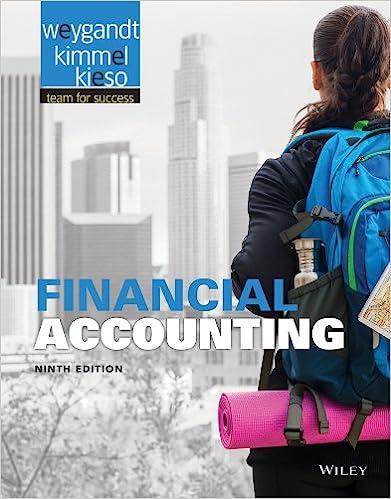Question
Accounting Problem CraneHoldings Inc., a publicly listed company in Canada, ventured into construction of a mega-shopping mall in Edmonton, which is rated as the largest
Accounting Problem
CraneHoldings Inc., a publicly listed company in Canada, ventured into construction of a mega-shopping mall in Edmonton, which is rated as the largest shopping mall in North America. The company's board of directors, after much market research, decided that instead of selling the shopping mall to a local investor who had approached them several times with excellent offers that he steadily increased during the year of construction, the company would hold this property for the purposes of capital appreciation and earning rental income from mall tenants. The construction of the mall ended on December 31, 2019.CraneHoldings retained the services of a real estate company to find and attract many important retailers torent space in the shopping mall. The shopping mall was fully occupied soon after construction was completed.
According to the company's accounting department, the total construction cost of the shopping mall was $62million. The company used an independent appraiser to determine the mall's fair value annually. According to the appraisal, the fair values of the shopping mall at December 31, 2020, and at each subsequent year end were:
2020 $62million
2021 $73million
2022 $79million
2023 $75million
The independent appraiser felt that the useful life of the shopping mall was 20 years and its residual value was $11million.
Note that the mall's rental income and expenses would be the same and thus can be omitted from the analysis for this exercise.
Instructions
a) Prepare the necessary journal entries for 2021, 2022, and 2023 if it decides to treat the shopping mall as an investment property under IAS 40: Use fair value model.
b) Prepare the necessary journal entries for 2021, 2022, and 2023 if it decides to treat the shopping mall as an investment property under IAS 40: Use the cost model.
Note: for all journal entries, use the list of accounts below & follow the Template in Chapter 10 Q3.png
List of Accounts
- Accounts Payable
- Accounts Receivable
- Accumulated Depreciation - Buildings
- Accumulated Depreciation - Equipment
- Accumulated Depreciation - Leasehold Improvements
- Accumulated Depreciation - Machinery
- Accumulated Depreciation - Vehicles
- Advertising Expense
- Asset Retirement Obligation
- Buildings
- Cash
- Common Shares
- Contributed Surplus
- Contributed Surplus - Donated Capital
- Cost of Goods Sold
- Deferred Revenue - Government Grants
- Depreciation Expense
- Donation Revenue
- Equipment
- Finance Expense
- Finance Revenue
- Gain or Loss in Value of Investment Property
- Gain on Disposal of Building
- Gain on Disposal of Equipment
- Gain on Disposal of Machinery
- Gain on Disposal of Vehicles
- GST Payable
- GST Receivable
- Interest Expense
- Interest Income
- Interest Payable
- Interest Receivable
- Inventory
- Investment Property
- Land
- Land Improvements
- Loss on Disposal of Building
- Loss on Disposal of Equipment
- Loss on Disposal of Land
- Loss on Disposal of Machinery
- Loss on Disposal of Vehicles
- Machinery
- Repairs and Maintenance Expense
- Mineral Resources
- Mortgage Payable
- No Entry
- Notes Payable
- Notes Receivable
- Office Expense
- Owner's Drawings
- Prepaid Expenses
- Prepaid Insurance
- Profit on Construction
- Purchase Discounts
- Purchase Returns and Allowances
- Rent Expense
- Revaluation Gain or Loss
- Revaluation Surplus (OCI)
- Revenue - Government Grants
- Salaries and Wages Expense
- Salaries and Wages Payable
- Sales Revenue
- Service Revenue
- Supplies
- Supplies Expense
- Tenant Deposits Liability
- Vehicles
Chapter 10 Q3.png

Step by Step Solution
There are 3 Steps involved in it
Step: 1

Get Instant Access to Expert-Tailored Solutions
See step-by-step solutions with expert insights and AI powered tools for academic success
Step: 2

Step: 3

Ace Your Homework with AI
Get the answers you need in no time with our AI-driven, step-by-step assistance
Get Started


